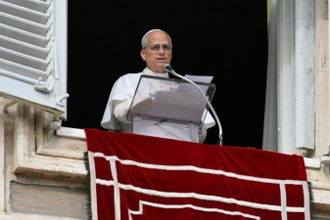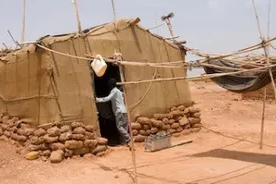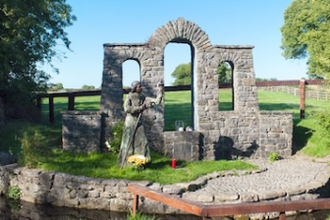Sudan: Bishops warn of return to Civil War

Children from St Teresa's School, Torit, Sudan
Sudan's Catholic bishops have issued a formal warning about the threat of a return to full-scale civil war and appealed for urgent food and medicine, stating that thousands of people are being terrorised by aerial bombardment. Referring to spreading violence in different regions in central and eastern Sudan, and newly created South Sudan, the bishops' statement urges the international community to intervene to stop the fighting.
In the official communiqué, entitled 'The Church God wants us to be', the Sudan Catholic Bishops' Conference - serving both Sudan and South Sudan - describes conflict in Blue Nile State, South Kordofan and Eastern Equatoria, as well as ongoing conflict in Darfur.
The bishops go on to call for immediate action, stressing how the conflict in oil-rich Abyei has been "militarised". And they underline the ongoing violence in Western Equatoria and Western Bahr el Ghazal caused by rebel group the Lords Resistance Army (LRA).
In their statement, a copy of which was sent to Aid to the Church in Need, the bishops warn that the two Sudans may be on course for a return to large-scale conflict. The document prompts fears of violence similar to Sudan's 1983-2005 civil war in which 2.5 million people died and five million were displaced. It states: "We are deeply troubled by the ongoing violence in our two nations [Sudan and South Sudan]. War has broken out in the Nuba Mountains, South Kordofan State and Blue Nile State...
"We have constantly warned of the danger of a return to hostilities if the legitimate aspirations of the people of those areas were not met. Civilians are being terrorised by indiscriminate aerial bombardment.
In an interview on Monday, 7 November with Aid to the Church in Need, Auxiliary Bishop Daniel Adwok Kur of Khartoum said: "If you consider the many conflicts in Sudan and South Sudan, they will almost certainly create a situation in which one side or the other will say 'Enough is enough. We need to do whatever is necessary to clear away the problem.'
"The Government of Sudan may say that if there are [hostile] soldiers on their border, we will need to react; the Government of South Sudan may say that it has to hunt down the militia including going into the territory of Sudan. This of course will provoke a reaction from Sudan. One of other of these things is quite likely to happen."
In their statement, the bishops go on to urge the international community - especially the African Union - to help resolve the conflicts, adhering to the terms of the January 9th 2005 Comprehensive Peace Agreement that formally ended the civil war.
The bishops' statement includes a plea for aid amid reports that hundreds of thousands of people have been internally displaced by the conflict on the border between the two Sudans.
Unicef reports that 2.7 million have been displaced by the conflict in Darfur.
The bishops' communiqué continues: "There is an urgent need to open humanitarian corridors to allow food and medicines to reach those in need."
It comes after humanitarian relief operations gave reports of more than 200,000 displaced people from South Kordofan and Blue Nile State, both on the contentious border between Sudan and South Sudan.
Aid to the Church in Need - alongside a number of aid organisations - has given emergency help, channelling aid through Bishop Adwok to support people displaced from Blue Nile State capital Damazin.
Proposing a range of key objectives for the new government of South Sudan, the bishops' statement singles out trauma healing as the "immediate priority", adding reconciliation within society depends on education, law and order and political maturity.
Stating that "corruption is unacceptable", the bishops call on the governments of both Sudans to be transparent and democratic.
The statement was issued after a 10-day plenary assembly of the bishops at which the prelates decided to retain one bishops' conference despite the creation of South Sudan.
Explaining the decision not to split into two bishops' conferences, the communiqué states: "The Church in the two nations will continue to be in solidarity due to our shared history and the very real and practical and human links between us."
The bishops go on, however, to refer to the creation of two "secretariats", one in each capital (Khartoum and Juba) to implement the pastoral policies of the bishops at a local level.
Source: ACN


















